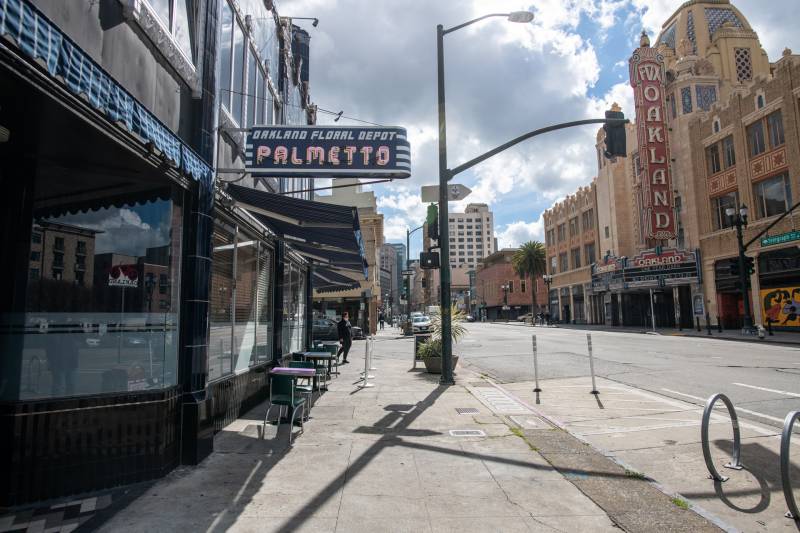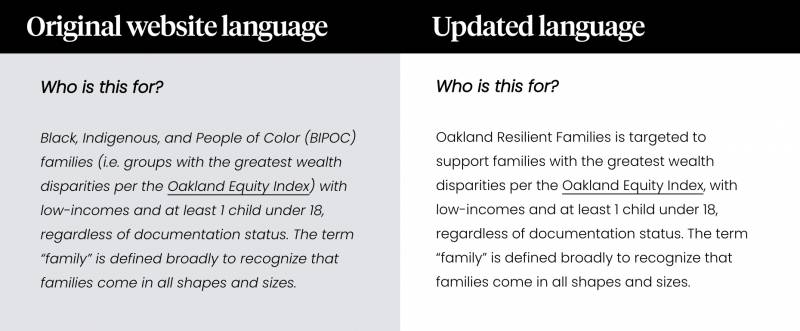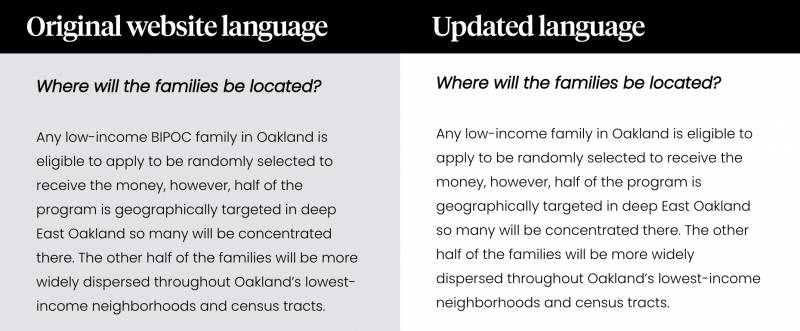After initially asking exclusively for applicants of color, organizers of a pilot program to provide a guaranteed income to hundreds of low-income Oaklanders now say all residents who meet the program's criteria are welcome to apply, regardless of race.
The Oakland Resilient Families program was announced last week as the latest experiment in a nationwide movement to aid low-income families by providing direct cash payments with no strings attached.
“We will enroll 600 BIPOC [Black, Indigenous, and People of Color] families in Oakland living with low-income,” said Jesús Gerena, CEO of the Family Independence Initiative, one of the nonprofit organizations running the program, at a press conference announcing the initiative. "And [they] will receive $500 a month for 18 months."
But now, a frequently asked questions section on the program's website has been altered to omit references to BIPOC.
Under the question "Who is this for?", the original language read "Black, Indigenous, and People of Color (BIPOC) families ... with low income and at least 1 child under 18... ."
The updated version says the program is "targeted to support families with the greatest wealth disparities," with no mention of BIPOC, but the other requirements remaining the same.
A different section previously stated, “Any low-income BIPOC family in Oakland is eligible to apply to be randomly selected."
Now, “BIPOC” has been removed from that sentence.
When questioned about the changes, Rae Oglesby, vice president of membership and communications at the Family Independence Initiative, said in an email that, “The program is targeting racial groups experiencing the largest disparities. That said, it is open to all residents. We just clarified the language.”
According to the program website, applicants will be randomly selected "with an intentional focus on groups with the greatest wealth disparities per the Oakland Equity Index."
The families will still be selected from two geographic pools of applicants: one pool from East Oakland, the other including residents from other parts of the city.
Half of the participants will be low-income, as defined by families earning below 50% of area median income. The other half will be "very-low income families" earning below 138% of the federal poverty level.
“We have not changed the program," said Justin Berton, communications director for Mayor Libby Schaaf. "We have had to clarify that while no family is prohibited from applying, this pilot is intentionally designed to serve and support BIPOC families, who evidence shows suffer the greatest and most disproportionate impacts of poverty."
The explicit focus on families of color had been hailed by supporters of the idea that unrestricted cash payments are a crucial tool to lift families out of poverty.



